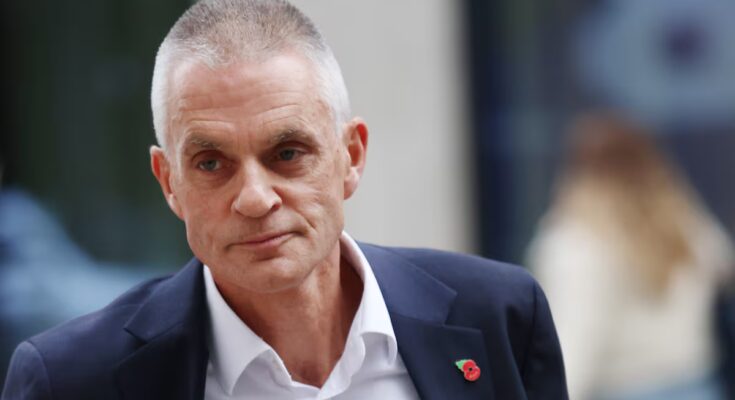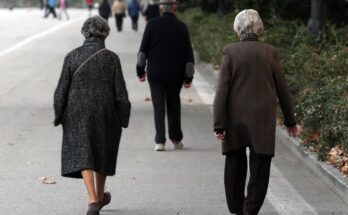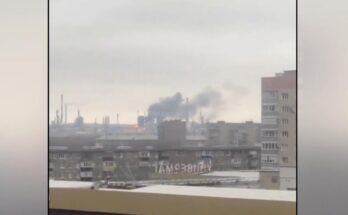The BBC is facing an unprecedented crisis over its controversial editing of a speech by US President Donald Trump in a documentary broadcast a year ago. The incident had a profound impact on confidence in the professional ethics of the prestigious British firm, as well as on journalistic practice in general. The resignations of the BBC’s director general, Tim Davie, and the head of its news division, Deborah Turness, as ultimately responsible for what the British public broadcaster described as an “error of judgment”, have not stopped the earthquake that has shaken the foundations of an institution whose founding principles include its commitment to “public service”.
The debate over editing Trump’s speech in the hours leading up to the January 6, 2021 riots at the US Capitol raises the stakes for the BBC’s most crucial intangible asset: its credibility. To resolve this issue you need to determine whether this was truly a disastrous error in judgment or deliberate manipulation. For Rasmus Kleis Nielsen, professor of communications at the University of Copenhagen and former director of the Reuters Institute for the Study of Journalism at the University of Oxford, “the editorial team of Panorama The program that sparked the scandal is the kind of issue that worries those who fear that journalism can sometimes become a form of disinformation.”
Rasmus Kleis Nielsen: “An example that will last”
Professor Nielsen has spent years researching the current state of journalism and the challenges it faces, and notes that “Trump’s support for the January 6 (2021) insurrectionists is well documented.” However, the documentary’s controversial editing “created a materially misleading representation of what he actually said in the speech in question.” Questioned by EL PAÍS, Nielsen concludes: “The team involved in the documentary, as well as the BBC staff who oversaw it, have a responsibility to provide the network’s critics – and those who distrust public service media or fear that journalists will try to distort the facts rather than report them – an example that will last.”
Faced with the threat of a lawsuit for “no less” than $1 billion from the president of the United States, the BBC reacted with a show of unity. On Tuesday, Davie appeared on a video call to the entire staff alongside the BBC’s chairman of the board, Samir Shah, to say he was “very proud of this organisation” and to say its journalists do “incredibly important work”. Although he admitted “mistakes that cost us dearly”, his combative tone echoed the sentiment expressed 24 hours earlier by the outgoing press chief, who had denied the existence of any “institutional bias”.
This last point is relevant to Julie Posetti, director of the Center for Journalism and Democracy at City St George’s, University of London. Posetti considers the case “an unfortunate error of judgment, but also unnecessary because Trump’s speech needed no editing to convey a message that clearly sounded like incitement to insurrection.” Posetti adds that, however, “a simple production error was manipulated into an unwarranted accusation of systemic bias and a political campaign to neutralize one of the most credible news organizations in the world.”
Renate Schroeder: “Deceptive editing, not institutional prejudice”
Renate Schroeder, director of the European Federation of Journalists (EFJ), highlights the importance of using the term “misleading editorial” rather than “left-wing institutional bias” to contextualize this case. According to Schroeder, “the latter is very dangerous when it comes to the growing attacks against public service media.” It acknowledges that “the BBC has admitted that editing of President Trump’s speech occurred Panorama “It was an error of judgment and he apologised.” He calls for a focus “on the future of the BBC”. And it warns that “subsequent government budget cuts have weakened the BBC’s core news output, both in its regional and national news programs and in the World Service”.
Awaiting a response after Trump’s deadline of 10pm GMT (5pm EST) on Friday to carry out his threat against the BBC, the company’s clear strategy is to acknowledge the mistake in the documentary Trump: a second chance? broadcast on Panorama program on October 28, 2024, one week before the presidential election, while simultaneously defending his professional conduct. The argument thus becomes a simple axiom: combining two parts of the president’s speech – separated by 50 minutes – was a mistake, but not intended to “mislead” (a term chosen by the BBC in his defense).
The edited video showed Trump saying, “We’re going to go to the Capitol … and I’ll be there with you. And we fight. We fight like hell.” In the current speech, however, the president of the United States said he will join his supporters “to go to the Capitol, and we will cheer on our brave senators, congressmen and women” and “peacefully and patriotically” make their voices heard. The reference to “fighting like crazy” was made 50 minutes later, at the end of his speech. Edited this way, Trump appeared to make a direct call to the riots, which left five people dead and resulted in more than 300 arrests.
The BBC acknowledges that it was a mistake, but on Tuesday Davie stressed that it had already cost two people their jobs, including himself, and urged everyone to “get on with it”. His message echoes the position already taken by the company, which apologized for the “error in judgment”, clarifying that the intention was to summarize the key points of the message in a “condensed format” to illustrate what happened on January 6, 2021.
Jeff Jarvis: “Pretext for a right-wing attack”
This is where Jeff Jarvis, an expert on media transformation since the advent of the Internet, considers the video editing “unfortunate for not making it clear that it was an invention.” Author of the influential blog BuzzMachine.com and classic essays on the subject such as Death at MassJarvis argues that “it was consistent with what Trump intended to do, which was to incite the crowd to anger.” He concludes that “the most unfortunate thing is that this mistake is being used as a pretext for a right-wing attack on the BBC, journalism and freedom of expression.” This “relentless attack on journalism and other social institutions” means, according to Jarvis, that “there will be information chaos until we build new media institutions.”
According to the BBC’s analysis of the controversy, management concluded that the segment containing the phrase “fight like hell” should have included a visual effect, such as a flash, to clearly distinguish it from the original segment. Furthermore, the BBC denied that it had deliberately omitted Trump’s use of the word “peacefully.”
The documentary has not sparked any complaints since it first aired over a year ago. However, the BBC has now received over 500 complaints following the leak early last week of an internal report alleging bias by the network, not only in its coverage of the US presidential election but also of the Gaza conflict and in its reporting on transgender rights.
For Josep Carles Rius, president of the Catalan Information Council (the only body in Spain associated with the international network of the Press Council which supervises journalistic ethics), and author of books such as Journalism and democracy in the age of emotionsthe dilemma presented by this case “has no easy or simple analysis.” He adds: “Journalists have the legitimate right to draw conclusions from the facts, but when explaining them they must be careful not to distort reality. Trump’s statements used in the documentary are literal, but the ones in dispute were made at the beginning and end of a speech, and the result may give an impression that distorts their meaning.”
The prevailing opinion, Rius concludes, “is that (Trump’s) speech motivated the attack on the Capitol; that connection existed and the American justice system addressed it accordingly. It was therefore legitimate to link the two events in the report, but the complementary strength of the speech’s drafting amplified the first. It would have been more ethically correct for the journalist to have supported the connection without needing to combine two parts of a speech.”
Rigor, credibility and trust
The accusation of systemic bias goes right to the heart of what the BBC aspires to represent: rigor, credibility and trust; and the resignations of Davie and Turness, for the moment, have not been enough to restore the reputation of an institution whose neutrality remains in the eye of the storm, especially in the current climate of gradual polarization.
The management team of Panoramafor its part, it remains in force for the moment. The program Trump: a second chance? had been commissioned from the independent production company October Films and, since the controversy erupted, the former editors of Panoramaa flagship BBC show, suggested that highly sensitive and politically charged productions should be produced by the BBC itself, rather than outsourced to external companies. According to the most recent data from YouGov, the BBC was the most trusted British media in June 2025, followed by Financial times.
As a result, the corporation faces a difficult succession, just as the government is about to review the BBC’s Royal Charter (constitutional basis), once the current 10-year period ends in 2027. At the heart of the discussion is the funding model, through a mandatory license fee that households pay each year, currently set at £174.50 (around $230), a direct subsidy from citizens that carries an immense responsibility.
On Tuesday, Secretary of State for Culture, Media and Sport Lisa Nandy pledged to present her proposals shortly, but in an appearance before the British Parliament, she struck a conciliatory tone towards an institution she praised for standing out from others in an era of blurred lines between fact and opinion. “He represents all of us,” he said in the House of Commons, where, in the face of recent pressure, he warned of the difference between “raising awareness of serious allegations” and a “sustained attack” from a section of British politics. Given the “light on the hill” role that Nandy described as being played by the BBC, mistakes are paid dearly and crises are managed in the public eye, with coverage like the current one, in which the British Broadcasting Corporation itself is both judge and jury.
Sign up to our weekly newsletter to get more English-language news coverage from EL PAÍS USA Edition



